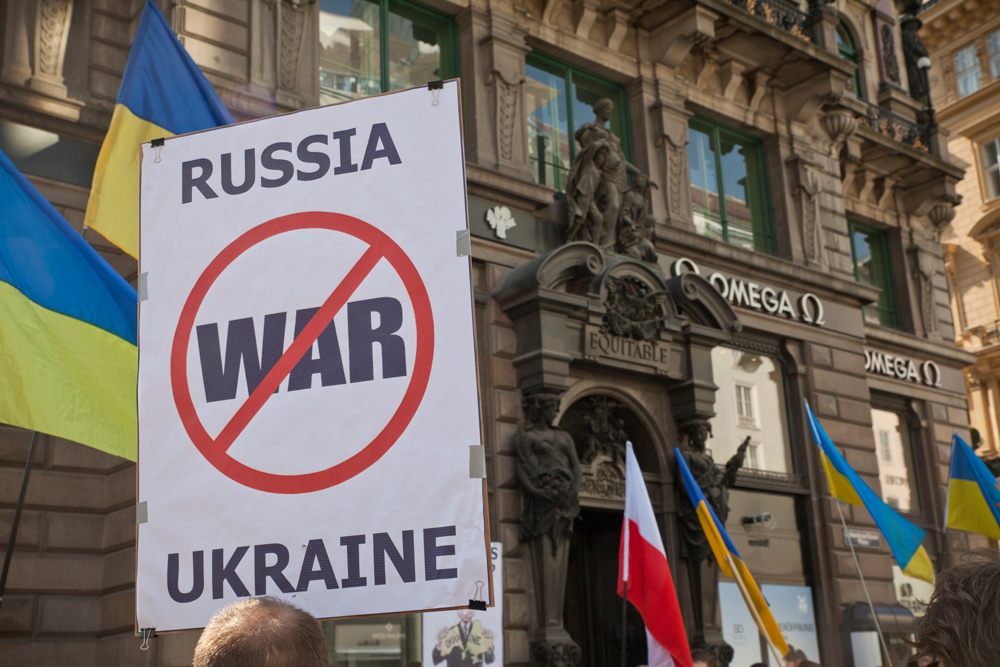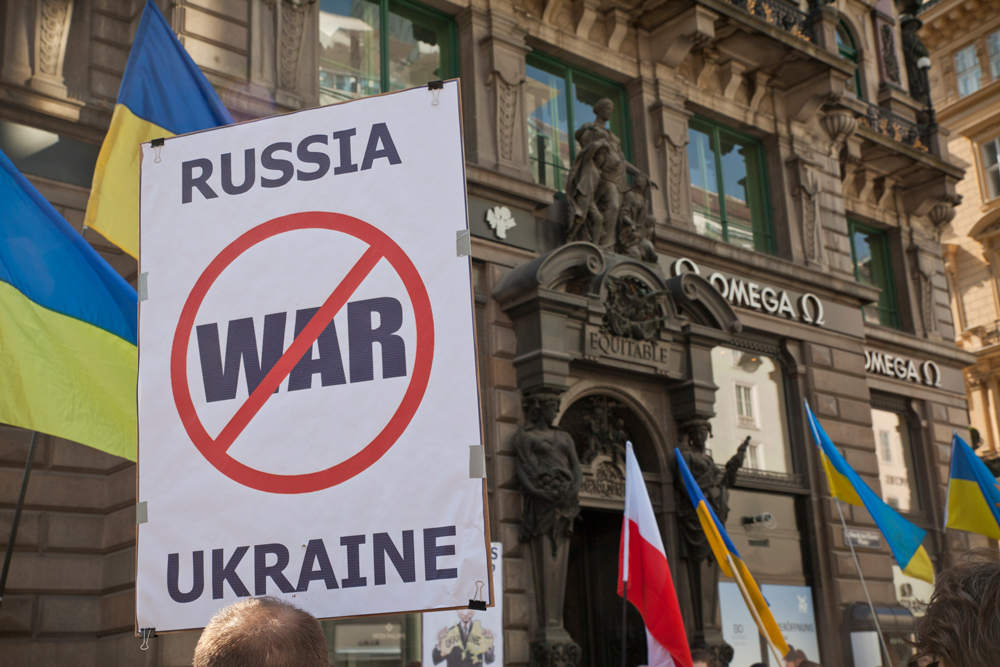By: Ron Ye

When I began working on the first version of this article, it was about a week before the start of Russia’s invasion of Ukraine. There were many uncertainties. Would Russia even invade Ukraine? It seemed like a risky move for Putin to make. How willingly would European nations support sanctions on Russia? Germany had shown reluctance in agreeing to the possible sanctions. Wouldn’t China help Russia economically? During the Olympics, Putin and Xi Jinping seemed to have had each other’s backs. Because of recent events, these uncertainties have been mostly answered.
However, the effectiveness of the sanctions that have been placed on Russia remains yet to be seen.
Current Situation
On February 23, 2022, at around 9:00 p.m. U.S. Central TIme, the Russian Federation began their invasion of Ukraine. Although not completely unexpected after months of military buildup by Russia starting in November 2021, the West had been hoping for a diplomatic solution. Surprisingly, as of February 28th, the Russian military, generally considered the 2nd best in the world, had yet to gain air superiority or take any major Ukrainian cities.
The Sanctions
The West’s response to the invasion has been limited to enacting severe economic, military, diplomatic, and sports sanctions, along with sending weapons to Ukraine as aid. This will most likely be the full extent of assistance from the West. Sending actual military forces into Ukraine would most likely mean the start of a third world war and could trigger a nuclear response by Russia, which Putin was not afraid to mention.
So what exactly are these economic sanctions?
The United States, Canada, Japan, Australia, South Korea, countries of the European Union, the United Kingdom, and multiple other countries have all imposed varying measures of sanctions. We will focus on a few of the most important and widespread economic sanctions that have been enacted on Russia.
Germany’s suspension of Nord Stream 2 pipeline approval
- The Nord Stream 2 is a natural gas pipeline that runs under the Baltic Sea from Russia to Germany. Although the Nord Stream 2 pipeline was completed in September of 2021, it has yet to become operational.
- Germany is seeking to meet its CO2 reduction targets by phasing out coal and switching to natural gas. The pipeline would have secured the supply of natural gas.
- The Nord Stream 2 also underscores Europe’s overall dependence on Russian natural gas, which has been a political and economic issue for many years. Europe receives 40 percent of its natural gas supply from Russia which is needed to heat homes, keep electricity on, and power industries. Originally, Europe’s natural gas came from the North Sea field that was located between the UK and Norway — but it has since been depleted. This dependence on Russian natural gas has caused Europe to be wary of economic sanctions prior to the start of the war.
Freezing the assets of the Central Bank of Russia
- The West has frozen about $600 billion worth of foreign currency reserves that the Russian central bank holds. The $600 billion was supposed to be used to maintain currency stability during market panic. Freezing it will prevent the Russian central bank from using these reserves to cushion the blow of the sanctions.
Removal from the SWIFT messaging system
- This is called the “nuclear option” of economic sanctions. SWIFT stands for “Society for Worldwide Interbank Financial Telecommunication” which is a global payment system that allows banks and companies to send money to each other. It’s the only nearly universally accepted system and is vital to international trade. The West has already banned select key Russian banks from SWIFT which essentially cuts them off from the rest of the world. Russian exports and imports will also be severely disrupted due to this.
Freezing the assets of Russian individuals and companies
- In an effort to directly hurt the people responsible for the invasion of Ukraine, Putin and Russia’s oligarchs have also been targeted with sanctions. These sanctions will block them from the international banking system and restrict their finances outside of Russia.
The Effectiveness of Sanctions
1 Russian Ruble is, as of February 28th, worth 0.0093 USD, less than 1 cent. In the past few months, it was worth around 0.013 USD. A drop of nearly 30 percent in value. The Moscow Stock Exchange closed on February 27th and will stay closed until March 5th. The Central Bank of Russia has raised its interest rates to 20 percent from 9.5 percent in order to try to stabilize the ruble. There are bank runs in Russia as Russians hurry to withdraw cash from their banks. Economists warn that the Russian economy could shrink by as much as 5 percent.
The economic sanctions placed on Russia are definitely having an effect but will they serve their actual purpose? Although they are having an economic effect, economic sanctions are meant to be used as a security and political tool.
Take, for example, Iran, North Korea, and Cuba. These are three countries that have been under US sanctions for decades. Iran has been subjected to increasing US sanctions since 1979. North Korea has been sanctioned since the 1990s. Cuba has been subject to US sanctions since 1962. The economies of these three countries have suffered from these sanctions but they have experienced no political change nor much unrest. Both Iran and North Korea continue to be ruled by “Supreme Leaders” and Cuba is still ruled by its communist party. Moreover, the sanctions on Iran and North Korea have been aimed at discouraging their nuclear weapons development but have had no such effect.
Authoritarian states are much more capable of being static under sanctions. They do not need to be concerned about the people. This applies to Russia too. Putin has had more than 20 years to cement his power in Russia.
Russia itself has also been under sanctions before. The West had placed sanctions on Russia after the 2014 Russian invasion of Crimea. Although these sanctions are very minor when compared to the current sanctions, it still goes to show the ineffectiveness of sanctions. It has harmed the Russian economy but hasn’t brought on any political change. After eight years, Putin is still the president of Russia. It also clearly hasn’t deterred Putin and Russia from further aggressive action nor have they weakened Putin. Even when threatened with severe economic sanctions before his 2022 invasion of Ukraine, Putin did not hesitate to invade.
All of these examples are pointing to one thing. That these new economic sanctions would have little effect on the political or security landscape in Russia. If the ineffectiveness of the economic sanctions stays true as history shows, then we may soon have to expect a Cold War-style Russia under Putin. Isolated, militarily strong, and hostile.
Will This Time Be Different?
However we should not gauge the future from one aspect. Putin has turned Russia into a pariah state. Rejected from international sports. Closed out of airspaces. Condemned by nearly half the countries of the world. Even China, a close ally of Russia, has become wary of the invasion.
Soon, the economic sanctions may seemingly have an effect. Unlike Iran, North Korea, and Cuba, Russia’s economy had been much more intertwined with the world economy before sanctions. However, the effects may also be actually due to a variety of factors. Russian forces are currently suffering heavy and unexpected losses against Ukraine. There are even protests occurring within Russia itself against the invasion.
If Ukrainian resistance remains stiff and unbroken, we may hope for a withdrawal of Russian forces. A war cannot be fought forever, especially with high casualties. Such a loss would be disastrous to Putin’s political standing in Russia. Economic sanctions may not be effective on their own, but if the Russian military continues to struggle in Ukraine, then this may just be the beginning of the end for Putin.
And if Putin starts to see that his end is coming, then the world may be in more danger than it ever has been.




